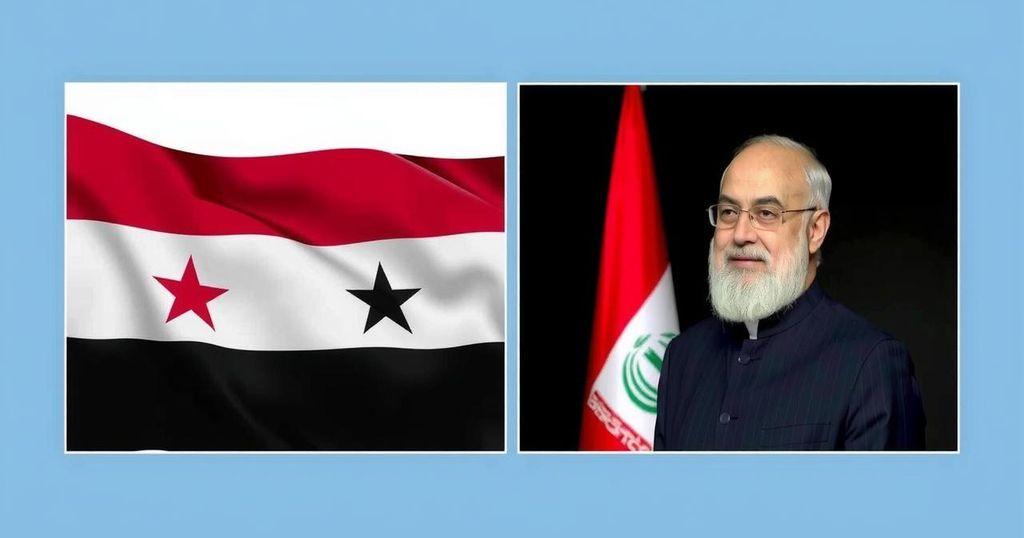Syria has denied any diplomatic discussions with Iran about reopening embassies, countering claims made by Iranian officials. Additionally, Syria plans to file a $300 billion lawsuit against Iran for damages due to its military support of the previous regime. This marks a significant shift in Syria’s foreign policy and indicates diminishing Iranian influence in the region.
In a strong denial of recent claims made by Iranian officials, a spokesperson for Syria’s new government has asserted that there are no diplomatic negotiations happening with Iran regarding the reopening of embassies in either Damascus or Tehran. This rejection came in response to statements made by Iranian government spokesperson Fatemeh Mohajerani, who indicated that dialogue was ongoing to restore relations between the two nations. The Syrian source clarified to Al-Arabiya on December 24 that no communication or talks have occurred regarding diplomatic missions.
Moreover, the Syrian government is reportedly preparing to pursue a significant legal claim against Iran, seeking $300 billion in reparations for damages attributed to Iran’s military involvement and support for the prior Assad regime. The source explained that this claim is based on losses incurred due to destroyed infrastructure and systemic violence against the Syrian population facilitated by Iran during the civil war. This legal action aims to hold Iran accountable for its supporting role in the oppressive policies that have devastated the nation.
Interestingly, Mohajerani’s assertions appear inconsistent with earlier remarks from Iranian Foreign Ministry spokesperson Esmail Baqaei, who acknowledged only limited interactions between Tehran and the current Syrian leadership and noted that there was no direct engagement with the ruling authorities in Damascus. Mohajerani, however, claimed, “We are committed to diplomacy and are prepared for discussions. Talks are underway regarding the reopening of embassies.” Such conflicting statements contribute to a sense of confusion regarding Iran’s position in Syrian affairs and indicate a significant decline in its regional influence.
The Syrian government’s clear disavowal of diplomatic relations with Iran, along with its initiative to seek reparations, illustrates a marked departure from the foreign policy previously championed by Bashar al-Assad. This pivot highlights a commitment to accountability and reconstruction, contrasting sharply with Iran’s historical alliance with Syria. It also signals a growing regional trend of states seeking to hold Iran responsible for its past interventions. The international community’s response to Syria’s attempts at reparations remains uncertain but signifies a broader desire for justice in the face of Iran’s tumultuous involvement in the region.
The current diplomatic tensions between Syria and Iran highlight a significant shift in foreign relations following the civil war in Syria. Iran has historically been a staunch ally of the Assad regime, offering military support and assistance to suppress dissent. However, with the emergence of new leadership in Syria, there appears to be a fundamental change in policy, indicating a desire to disassociate from Iran’s influence and seek accountability for its actions. This development comes amid broader regional dynamics where countries are increasingly reassessing their alliances and seeking to distance themselves from Iranian interventions that have had detrimental consequences.
In summary, Syria’s firm rejection of any current diplomatic engagement with Iran and its ongoing preparations for a $300 billion lawsuit signify a decisive shift in the nation’s foreign policy. This new approach aims to hold Iran accountable for the devastation wrought during the civil war and reflects a broader movement among Middle Eastern nations to reassess their relationships with Tehran. The implications of these developments could reshape the regional balance of power and influence as Syria navigates a path toward accountability and reconstruction.
Original Source: www.ncr-iran.org






